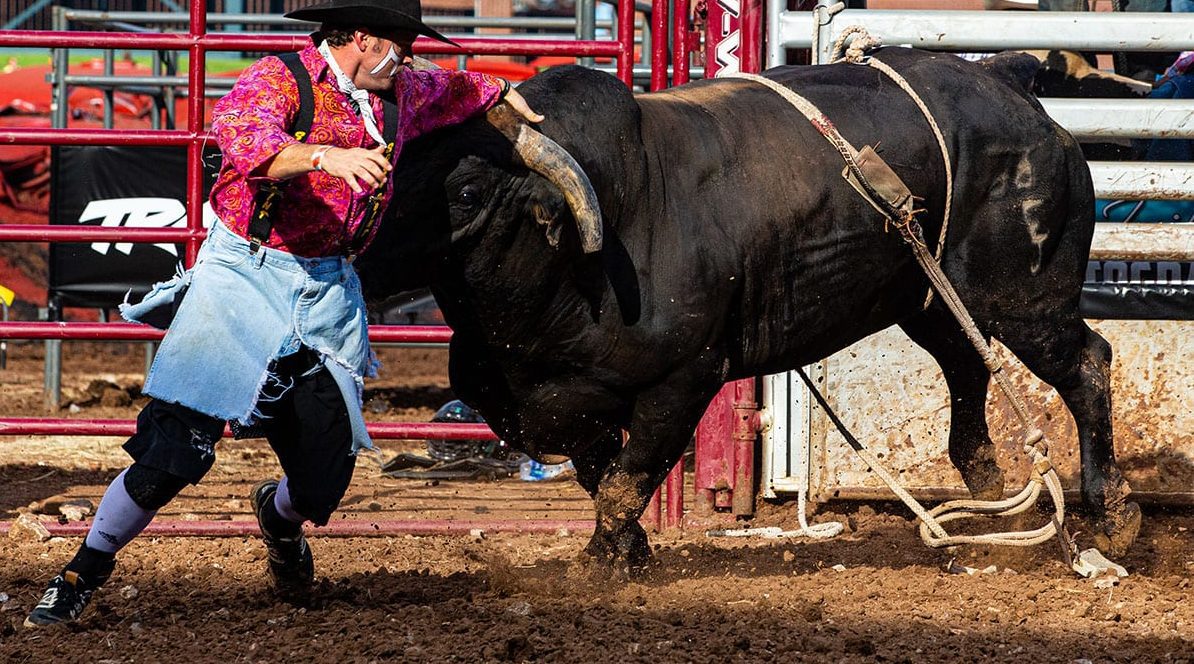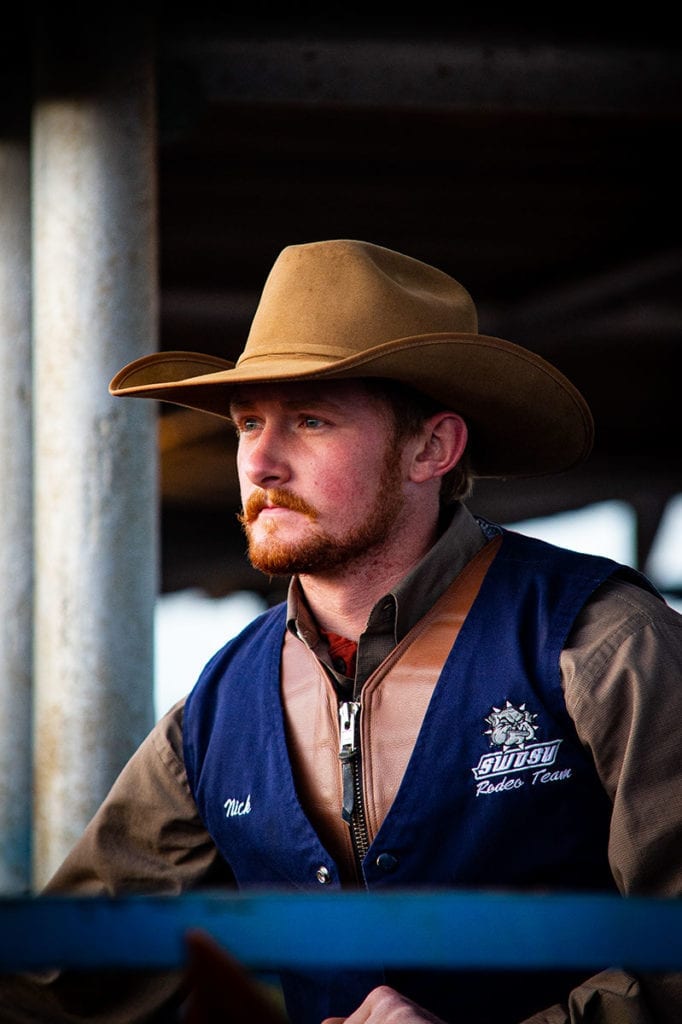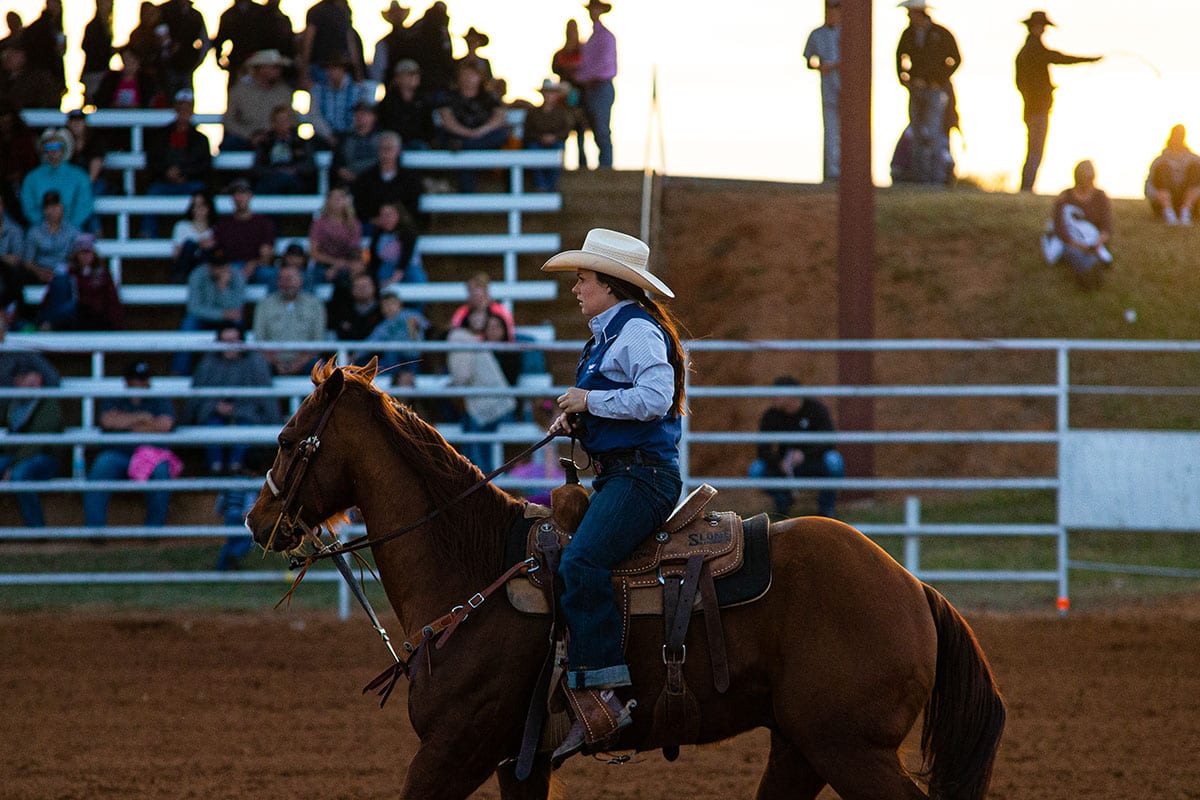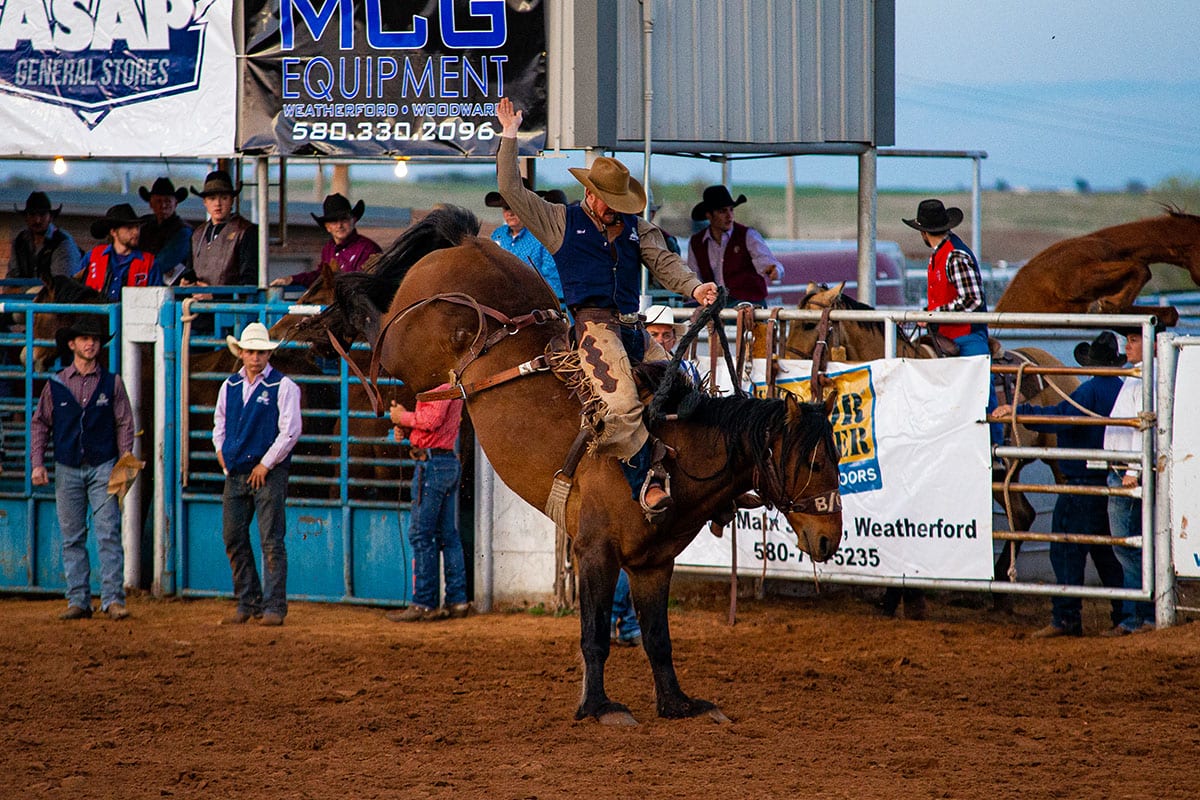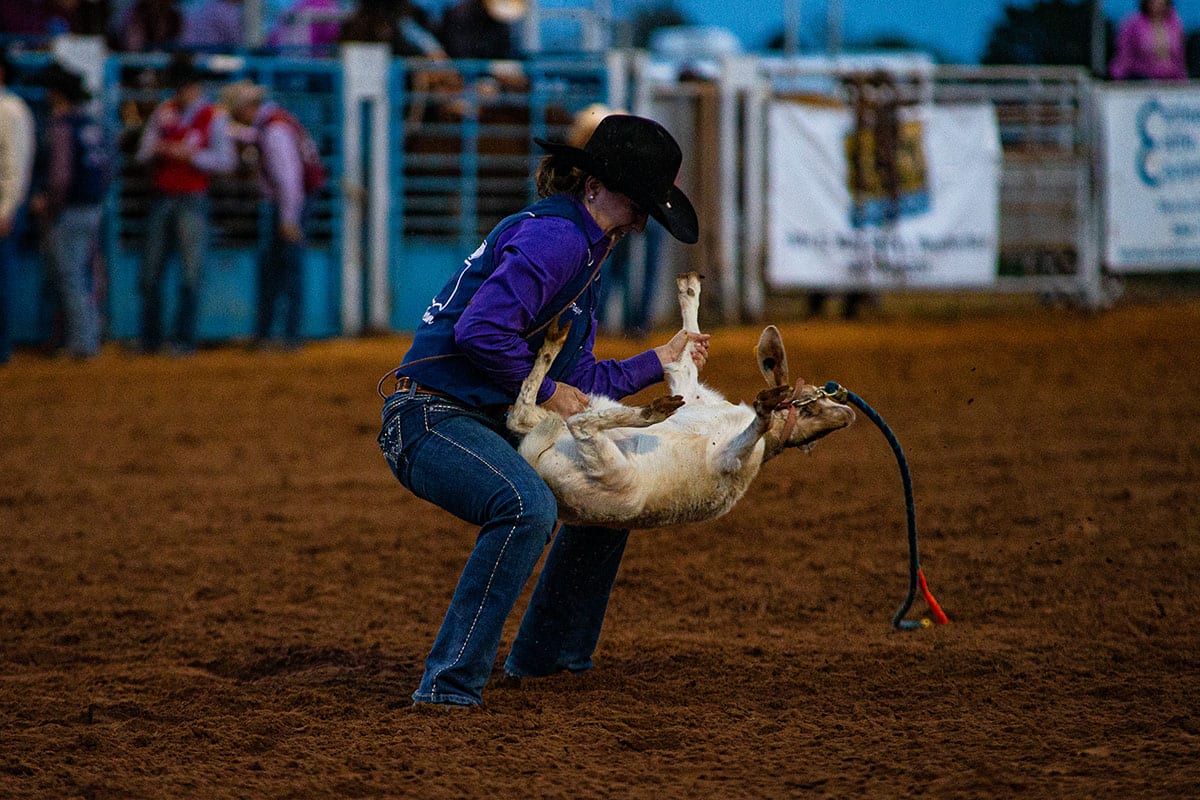Coleman Proctor, five-time National Finals Rodeo qualifier in team roping, describes rodeo as a sport that was born out of everyday jobs. An exciting world of dedicated athletes has sprung from the tasks performed by cowboys and ranch hands. In events from bull riding and barrel racing to steer wrestling and tie-down roping, rodeo athletes use quick reflexes, unparalleled horsemanship, trained muscles and many hours of practice to accomplish spectacular feats, often in mere seconds.
Proctor grew up in Oklahoma watching his parents rope and was imitating them from age three.
“I just got the bug early and it’s all I’ve ever wanted to do,” he says. “As soon as I could walk, I had a rope in my hand.”
But not everyone gets started in rodeo this way. Mike Visnieski, head rodeo coach at Southwestern Oklahoma State University, started rodeoing as a teenager and says that he sees talented athletes who grew up around the sport and those who got interested a little later. There are also schools and clinics, he says, for roping, bull riding and other events where participants can learn the fundamentals or practice skills needed to succeed.
With this particular sport, everyone interested is invited to compete, and practice and dedication can put competitors on an equal footing, says Stockton Graves, head rodeo coach at Northwestern Oklahoma State University and seven-time National Finals Rodeo qualifier.
“Your level of success depends on your level of dedication – whether you want to dedicate your life to it,” he says. Visnieski and Graves both emphasize the need for physicality and athletic strength, but rodeo sports are also a cerebral game.
“Mentally, you have to be 100% given to your sport if you want to be successful and accomplish goals,” says Graves.
Visnieski emphasizes the fact that a rodeo performance is often so quick, there’s no time for remembering movements step by step. If competitors stay focused and calm, then the muscle memory can take over.
“The more muscle memory, the more automatic it is, the better you’re going to perform. Successful people are consistent in their performances,” he says. “Doing the same thing over and over and wearing out what works.”
Rodeo competitors “have to have a lot of confidence and a really short memory,” says Proctor with a laugh.
But while the competition is high-level, the culture around rodeo is friendly and family-oriented, where everyone helps everyone else, says Graves.
“One thing that makes me so proud in rodeo is that I’ve met nothing but the greatest people,” seconds Proctor. “It’s hard-working guys who are trying to make a living with their rope.”






















